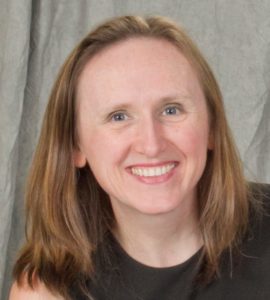 Progressive Voice is a weekly opinion column. The views and opinions expressed in the column are those of the individual authors and do not necessarily reflect the views of their organizations or ARLnow.com.
Progressive Voice is a weekly opinion column. The views and opinions expressed in the column are those of the individual authors and do not necessarily reflect the views of their organizations or ARLnow.com.
By Sheila Fleischhacker
“I don’t have any friends.”
“My teachers don’t understand me.”
“The system is rigged so I won’t get in a good college and we can’t afford it.”
Unfortunately, many Arlington youth feel overly anxious or depressed, as they struggle to juggle friendships, academics, athletics and family in our fast-moving, high-expectations world. And, far too many struggle with difficulties like having enough food to eat, housing instability, discrimination of different types and other social concerns.
To address these issues, stakeholders, including Arlington Public Schools, Arlington County staff, and the Arlington Partnership for Children, Youth and Families (APCYF), are seeking innovative strategies to identify and support mental health issues facing our young people. But the scale of the problems, coupled with limited available resources, means that we need additional help. We are looking for volunteers to join the partnership in this journey.
Supporting our youth is not a job solely for mental health professionals. APCYF advocates for additional mental health school staff, educates the public on recognizing signs and symptoms of mental illness, and directs families to culturally relevant sources of support.
Arlington is similar to other parts of the country in terms of the prevalence of depression and the factors that may exacerbate its primary symptoms (sadness, irritability, crying and changes in appetite). Indeed, one out of three students in Arlington high schools reported feeling sad or hopeless for two or more consecutive weeks during the prior year, according to the findings from the 2017 Youth Risk Behavior Survey (YRBS). And, 6 percent of high school students reported that they attempted suicide during the same time period. Self-reported experiences of depression and thinking about suicide were higher for girls in middle and high school.
The survey highlighted disparities across racial groups, with Latino youth reporting a higher incidence of depression and attempted suicide, and LGBTQ+ youth reporting higher rates of depressive symptoms. Similar to national data, only 30 percent of Arlington youth reporting depressive symptoms said they received the help they needed; black and Asian students reported that they received little to no help. According to ACPYF member Dr. Alfiee M. Breland-Noble, a nationally recognized expert on adolescent depression, “Depression is a universal illness that does not discriminate, but one that has racial disparities in terms of who gets care.”
APS is a valuable partner for increasing access to mental health care and these investments have positive impacts on educational outcomes. Increasing student and staff awareness about mental illness is decreasing stigma and fostering stronger relationships among students, between students and staff, and between staff and mental health allies outside the school system. As one example, Arlington’s Behavioral Health Bureau now offers same-day access to family mental health services.
Emotional and psychological trauma resulting from a one-off event (e.g., date rape) or ongoing events such as child abuse and neglect can induce depressive symptoms. The physiological impacts are not something that many youth can “just get over.” APCYF advocates for improved coordination across the school, county, and other mental health allies. The aim is an approach that teaches all involved to recognize the signs and symptoms of trauma; integrates that knowledge into policies, procedures, and practices; and actively resists re-traumatization of our youth.
More than 900 APS staff have been trained in recognizing potential mental health concerns. Recently, APS introduced the “SOS Signs of Suicide” program for eighth and tenth graders to teach teens that depression is a treatable illness, equip them to respond to a friend with suicidal thoughts and provide depression screening for all eighth grade students.
APCYF is also working on prevention, including identifying best practices to build resilience among our youth to help them deal with difficult events that can change their lives. Please consider ways you can partner with us in furthering our research, engagement and advocacy. Learn more by attending our meetings and the Mental Health Roundtable Subcommittee meetings, whose work includes directing youth, families and communities to much needed resources.
Sheila Fleischhacker is the Chair of the Arlington Partnership for Children, Youth and Families. Dr. Fleischhacker is a nutrition scientist and public health lawyer with more than 15 years of experience working in academic, government and non-government sectors to strengthen the role of law and policy approaches to improve healthy eating, particularly among high risk, underserved communities. She is the mother of two children living in Alcova Heights.

